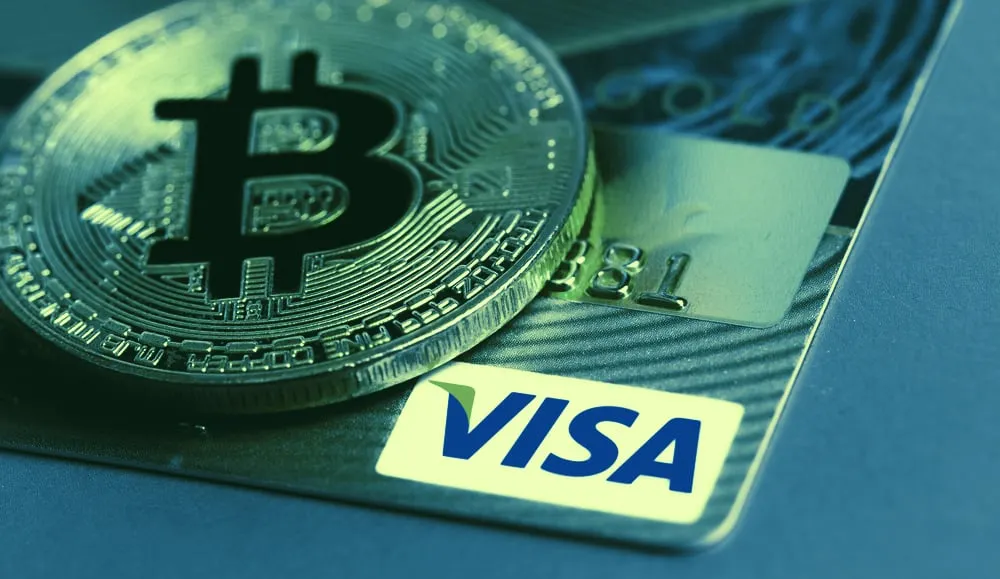Table of Contents
The first time my brother and I tried to spend crypto in real life, we walked into our favorite luxury store acting like we owned the place. We didn’t even check if they accepted crypto; we just assumed we could flash our Bitcoin wallet and walk out with a shopping bag. When the cashier politely told us they only took regular payments, the awkwardness? We quietly saved ourselves the embarrassment and paid with our regular credit cards.
That moment made me wish crypto had its own credit card. A few months later, I found out it actually did, we just had no clue at the time.
Now that we know better, here’s the simple version of what crypto credit cards really are, how they work, and why they matter.
What Is A Crypto Credit Card?

A crypto credit card is a payment card that lets you spend cryptocurrency the same way you spend regular money. In many cases, you can also borrow from the card issuer, just like a normal credit card. Instead of swiping cash or a bank card, your purchases are settled using cryptocurrency from your crypto wallet.
You can spend your own crypto or borrow up to a set limit and repay later if you choose. On top of that, many cards offer rewards, cashback, or perks in cryptocurrency, like Bitcoin or Ethereum, instead of points or miles.
Since crypto credit cards run on regular payment networks like Visa or Mastercard, any store that accepts normal credit cards also accepts them. They give you the flexibility to spend your own crypto, borrow if needed, and earn crypto rewards, all in one card.
How Does a Crypto Credit Card Work?
Using a crypto credit card is simple for the user, but a lot happens behind the scenes. Here’s how it works:
1. You make a purchase
When you make a purchase, you can swipe, tap, or pay online just like you would with a normal credit card. You can choose to spend from your own crypto balance or borrow from the card issuer.
2. Your crypto converts automatically
If you spend your own crypto, the card instantly calculates how much cryptocurrency equals the purchase amount in regular money (like dollars, euros, or naira) and converts it in real time. The merchant gets paid in regular money, so they don’t even know you’re using crypto.
3. You can borrow if needed
If you choose to borrow, the card issuer pays the merchant in regular money immediately, and your account shows the balance that you owe. You are effectively borrowing funds, just like with a traditional credit card.
4. You repay the borrowed amount
Borrowed amounts must be repaid according to the card’s billing cycle. You can repay in cryptocurrency or in regular money, depending on the card. Some cards allow partial repayments, while others require full repayment by the due date to avoid interest.
5. You earn crypto rewards.
Many cards offer cashback, points, or crypto rewards like Bitcoin or Ethereum for every purchase, whether you spend your own crypto or borrow from the issuer.
However, because crypto prices fluctuate constantly, a $50 purchase today may cost slightly more or less crypto tomorrow, depending on the market rate at the moment of the transaction.
Crypto Credit Card vs Crypto Debit Card: What Are the Differences?
Many people mix up crypto credit cards with crypto debit cards, but they’re not twins. They both let you spend cryptocurrency at stores that accept regular cards and often offer rewards, but there are some key differences:
1. Borrowing:
- Crypto debit cards: You can only spend the crypto that’s already in your wallet. No borrowing, no monthly repayment.
- Crypto credit cards: You can borrow from the card issuer up to a set limit and repay later, just like a normal credit card. This gives flexibility for bigger purchases or when your crypto balance is low.
2. Spending limits:
- Crypto debit cards: You can only spend the crypto that’s already in your wallet. There’s no borrowing, so your purchases are limited to what you have on hand.
- Crypto credit cards: The issuer gives you a credit limit, allowing you to spend more than you currently hold.
3. Credit-building:
- Crypto debit cards: Using it doesn’t affect your credit score because you’re using your own funds.
- Crypto credit cards: Using it responsibly can help build or improve your credit score if the issuer reports to credit bureaus, just like a traditional credit card.
4. Flexibility and financial tools:
- Crypto debit cards: Simple and straightforward. When you spend your crypto, you get basic rewards.
- Crypto credit cards: Often offer additional tools like installment payments, temporary credit boosts, or advanced reward redemption options, giving you more control over your spending and earning potential.
What Are the Features of Crypto Credit Cards?
Here are the key tools and functions that make crypto credit cards work smoothly and securely:
- Biometric and Multi-Factor Security: Includes options like fingerprint, facial recognition, and two-factor authentication to secure the card.
- Mobile App Controls: Allows you to freeze or unfreeze the card, set spending limits, and monitor transactions from the app.
- Real-Time Spending Alerts: Sends instant notifications whenever the card is used.
- Real-Time Pricing Engine: Calculates the exact amount of crypto needed for each purchase at the current market rate.
- Fraud Detection & Zero-Liability Mechanisms: Monitors transactions for suspicious activity and blocks unauthorized charges.
- Secure Payment Gateway: Works through Visa or Mastercard networks for seamless processing.
- Physical and Virtual Card Options: Available as a physical card for in-store use or a virtual card for online shopping.
Benefits Of Crypto Credit Card
1. It’s A Simple Way To Get Started:
Credit cards that offer cryptocurrency as a reward is usually linked to a cryptocurrency exchange, where you can buy bitcoin, ether, and a variety of other digital currencies. To perform crypto purchases and sells, you don’t need to use a distinct currency exchange. It’s a less time-consuming way to get your toe in the water. And, unlike with an exchange, if you acquire crypto as a credit card reward, you might not have to pay a commission on the transaction, albeit this depends on the card.
2. Lottery Ticket High:
It’s a chance to gain a lot of value for a small amount of money, similar to buying a lottery ticket. Part of the enjoyment is fantasizing about what you could purchase with the money, even if you realize your odds of becoming wealthy are slim to none. It could be aspirational, such as thinking about utilizing a fair quantity of airline miles to purchase a first-class seat to an exotic location worth thousands of dollars.
3. Appreciation:
After you receive a cryptocurrency incentive, it has the potential to appreciate. Cash returned, on the other hand, is unlikely to increase in value. If you buy something with credit card points and then resell it, the item will most likely lose value. You can’t resale an airline ticket or a hotel room purchased using miles or points for a profit. As a result, bitcoin is one of the few incentives with the potential to appreciate.
4. Passive Investing:
You might debate whether buying cryptocurrency is truly investing, but utilizing a cryptocurrency credit card is a convenient method to save money without having to think about it.
How to Choose a Crypto Credit Card
Choosing a crypto credit card is really about matching the card to the way you use crypto. Here’s the simplest way to figure out which one actually fits you:
1. Start with How You Spend
Ask yourself how you plan to use the card, because your spending style narrows your options.
If you want to spend it like a normal card, choose a card that automatically converts your crypto to regular currency at checkout. Some cards, however, require you to preload funds manually.
If you only spend occasionally or want more control over conversions, a prepaid-style card might make more sense.
2. Match the Card to the Coins You Actually Hold
There’s no point choosing a card that doesn’t support your main crypto. If most of your portfolio is stablecoins like USDT or USDC, then pick a card that allows you to spend them directly.
If you have multiple coins and want flexibility, choose a card that supports switching between them in the app
3. Compare the Real-Life Costs
Now, look at what you’ll actually pay when using the card. Look at fees like conversion charges, ATM withdrawals, foreign transaction fees, and subscription costs. Consider how you’ll actually use the card; online, in-store, or abroad, and pick one that keeps everyday spending affordable.
4. Check Features and Security
If you require specific features in a card, go for a card that has those features. Confirm that the card offers: biometric logins, real-time spending alerts, mobile app control, global acceptance, and fraud protection. These features make everyday use safer and simpler.
5. Verify Regional Support
Some cards have country restrictions or limits on borrowing, rewards, or card delivery. If you travel a lot, choose one with global coverage, low foreign fees, and reliable support abroad.
Who Are Crypto Credit Cards Ideal For?
Crypto credit cards are perfect for people who already hold crypto and want an easier way to use it in everyday life, without manually converting it or moving it between wallets.
They work well for shoppers who want to earn crypto rewards instead of points, travelers who want a globally accepted card, and anyone who likes the idea of paying with crypto while still having a backup credit line for emergencies.
They’re also a good fit for people who want flexibility. If you like choosing which coin you spend, want the option to borrow when your balance is low, or prefer having multiple repayment choices, these cards make the process simple.
But if you never use crypto or you prefer traditional banking, a regular credit card will feel more straightforward.
Frequently Asked Questions (FAQs) About Crypto Credit Cards
Are crypto credit cards safe?
Yes, they are safe to use. They use the same security systems as major banks: fraud monitoring, encryption, biometric login, and zero-liability protection.
Do I pay interest like a normal credit card?
Yes, you pay interest like a normal credit card. Credit-based cards charge interest if you don’t pay your balance on time, just like a regular credit card.
Which cryptocurrencies can I use?
The most common ones you can use are: Bitcoin, Ethereum, Litecoin, and stablecoins like USDT or USDC. It varies by card.
Do I need to already own crypto before getting a crypto credit card?
Not always. Some cards require you to fund your wallet first, while others let you borrow from the issuer right away (just like a normal credit card). It depends on the card type and the provider.
Can I withdraw cash from an ATM using a crypto credit card?
Yes, you can. Most crypto cards allow cash withdrawals, but conversion happens first, and withdrawals usually count as cash advances if you’re borrowing.
Are crypto credit cards better than regular credit cards?
No, they’re not better, just different. They’re ideal if you want crypto rewards or prefer spending crypto directly.
Conclusion
Crypto credit cards bridge the gap between digital money and everyday life. They allow you to shop, pay bills, travel, and earn rewards, all while quietly converting your crypto in the background.
If you’ve ever wished you could use your Bitcoin as smoothly as a normal card, this is your moment. Crypto credit cards make it effortless, simple, and surprisingly fun.
Last updated on December 2, 2025

